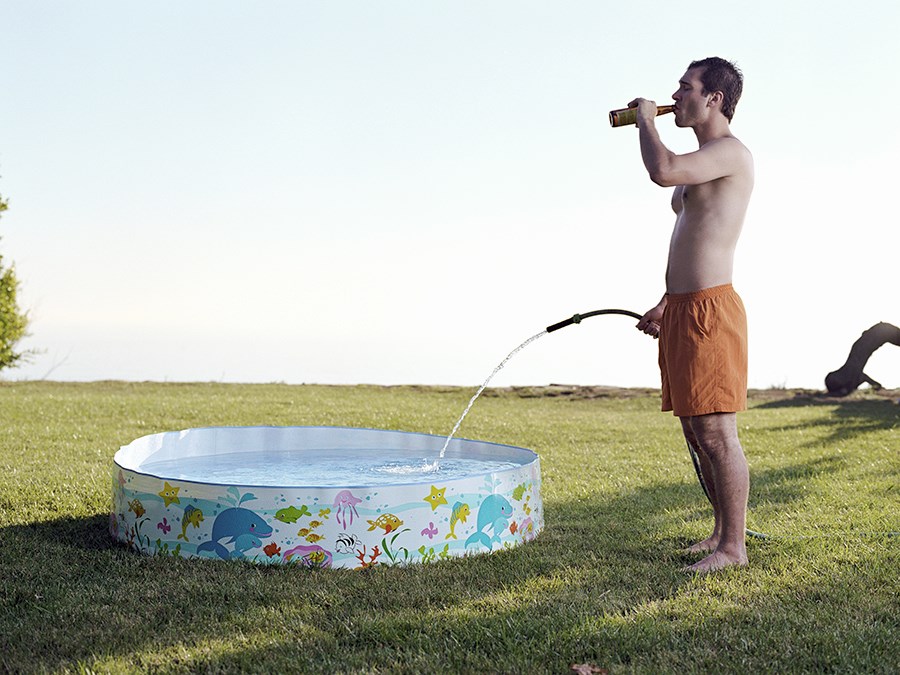Popping up between photos of people's overheated thermometers on Instagram this week have been some concerning posts from some of your favourite B.C. craft beer companies capitalizing on the heatwave.
The many brands that I follow on the platform are small to medium-sized operations, run by honest people making great beer locally and dealing with a lot of red tape from B.C.'s liquor regulations.
Most of these brands' social media teams have decided to strike while the iron is hot, posting photos and videos of people living it up in the shade, toasting each other under sun umbrellas, or relaxing at the beach. Along with that imagery has been messaging about there being no better way to spend these scorching hot days than enjoying an ice-cold beer.
You can't blame them for seeing an opportunity and jumping on it. I mean, what beer-loving drinker doesn't enjoy a cold one on a hot day? I've had a couple over the last few days while spritzing my face with water in the shade; it defines summer for a lot of us.
However, many brands have seemingly stepped over a blurry line with claims that you can "beat the heat" by drinking their "refreshing" beers. There have been so many that I didn't even bother making a list. I've even seen a couple saying you can "stay hydrated" by drinking them.
That might be a problem?
Assuming that not everyone is as exceedingly wise and mature as you and I are, some people might see that messaging and actually believe that "beating the heat" by drinking alcohol and using it (a dehydrating diuretic) to hydrate themselves does not mean that they'll simply be numbing their senses (and their better judgment) and drinking themselves into a crumpled heap on the sidewalk, to be peeled off of it by paramedics and wheeled off to an air-conditioned emergency room.
Are there regulations in place to prevent this sort of messaging? Sort of.
The for B.C. alcohol brands posting to their social media accounts are pretty much the same as the ones in the CRTC's complex .
Alcohol brands aren't allowed to show people drinking, like the guy in the stock image in this piece. Among other things, they're also not allowed to claim that their products will make you stronger or more attractive to the opposite sex. But there's nothing that explicitly says they can't make claims about hydration. In fact, there's literally no mention of anything health-related in the federal or provincial regulations, except that they're partly there to protect people's health.
The closest thing is paragraph E in the federal code, which in part says brands can't advertise their products as "a necessity for the enjoyment of life or an escape from life's problems."
Similarly, a trade organization called Beer Canada's only briefly alludes to health claims in section 6.1, which says "Advertising and marketing materials will not make representations about drinking beer for health therapeutic or health claims, except as permitted by law."
I took the question to B.C.'s Ministry of Public Safety to see if I could get some clarity, but they couldn't give me a definitive answer as to whether or not saying a beer has "hydrating" qualities or advertising beer as a way to "beat the heat" during a heatwave are acceptable under the current regime.
They pointed me toward the published regulations linked above, and advised that the Liquor and Cannabis Regulation Branch (LCRB) "investigates complaints about licensee advertising that does not appear to comply with the regulatory requirements."
As they tell me, their investigation process usually begins when a complaint is made to them by a member of the public, over email. Their compliance and enforcement unit reviews these complaints on a case by case basis, then "takes appropriate action" (fines, etc) to "bring them into compliance."
Our vibrant craft brewing industry deserves to be celebrated for their ingenuity, the way they build community, and for dealing with all of the hoops that they have to jump through before they can even begin to think about marketing themselves. It surely doesn't want or need the government stepping in and piling on even more regulations, so here's hoping common sense might prevail the next time we're met with an extreme weather event.



